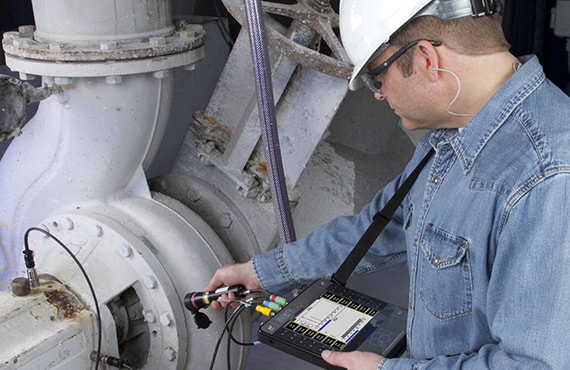GB/T 32610 – Protective Mask Filtration Efficiency Test
The GB/T 32610 standard is an essential tool for ensuring the safety and effectiveness of protective masks used in various industries, including oil & gas. This standard specifies procedures to determine the filtration efficiency of protective masks against non-oily particles, which are critical for preventing respiratory hazards.
Understanding the filtration efficiency of protective masks is crucial, especially in environments where airborne contaminants pose significant risks. The test evaluates how efficiently a mask can filter out harmful particles, ensuring that workers remain safe from inhalation of pollutants. This standard is pivotal in maintaining compliance with health and safety regulations across different sectors.
The procedure involves the use of aerosol generators to produce particles within specific size ranges (typically 0.3 μm). These particles are then passed through a sample mask, and their subsequent concentration on the downstream side of the mask is measured. The ratio of the upstream particle concentration to the downstream concentration determines the filtration efficiency.
The test setup includes an aerosol generator capable of producing stable, reproducible aerosols with known particle sizes. A flow rate controller ensures consistent airflow through the mask under test conditions. Particle counters are used to measure both the upstream and downstream particle concentrations accurately. This setup allows for precise measurement of filtration efficiency, which is essential for quality assurance.
The GB/T 32610 standard is particularly relevant in the oil & gas sector where workers often encounter hazardous environments with high levels of airborne contaminants. Protective masks are a cornerstone of respiratory protection strategies, and ensuring their effectiveness through rigorous testing is paramount. The test provides quantitative data that can be used to select appropriate masks for different work scenarios.
Compliance with this standard ensures not only regulatory adherence but also enhances the overall safety culture within an organization. By adhering to GB/T 32610, companies demonstrate their commitment to employee health and well-being, which is vital in maintaining a positive reputation and ensuring workforce satisfaction.
The test procedure must be conducted by trained personnel using calibrated equipment to ensure accurate results. The reproducibility of the testing process is critical for consistent quality assurance. Regular testing ensures that protective masks maintain their effectiveness over time and under varying conditions, which is essential in dynamic working environments like oil & gas.
The results from this test are reported as filtration efficiency percentages, which indicate how effectively a mask can protect against non-oily particles. These values are crucial for quality managers and compliance officers to make informed decisions about the selection and use of protective masks. The data also plays a significant role in R&D efforts aimed at improving mask designs and materials.
In summary, the GB/T 32610 standard is vital for ensuring that protective masks meet stringent filtration efficiency requirements. Its implementation contributes significantly to occupational health and safety in high-risk environments like those found in oil & gas operations.
Why Choose This Test
Selecting the appropriate test is crucial for ensuring the effectiveness of protective masks used in various industries. The GB/T 32610 standard offers several advantages that make it an ideal choice:
Accuracy and Precision: The use of calibrated aerosol generators and particle counters ensures accurate measurement of filtration efficiency, providing reliable data for decision-making.
Rigorous Compliance: By adhering to this standard, companies ensure that their protective masks meet stringent regulatory requirements, thereby enhancing worker safety and compliance.
Consistency: Regular testing using GB/T 32610 ensures consistent quality of protective masks, which is essential for maintaining a safe working environment.
Informed Decision-Making: The quantitative data provided by this test allows companies to make informed choices regarding mask selection and usage, optimizing both safety and operational efficiency.
Reputation Enhancement: Demonstrating commitment to employee health and well-being through rigorous testing can significantly enhance a company's reputation in the industry.
Purposeful Research Support: The test results contribute valuable data for ongoing research and development efforts, driving innovation in mask design and materials.
Customer Impact and Satisfaction
The adoption of the GB/T 32610 standard by customers directly impacts their safety and satisfaction. By ensuring that protective masks meet stringent filtration efficiency requirements, companies can:
Enhance Safety: Ensuring that masks are effective in filtering harmful particles reduces the risk of respiratory hazards, thereby enhancing overall safety.
Increase Employee Trust: Demonstrating a commitment to employee health and well-being through rigorous testing can significantly increase trust and loyalty among employees.
Maintain Regulatory Compliance: Regular adherence to this standard ensures that companies remain compliant with relevant regulations, avoiding potential penalties and fines.
Optimize Operational Efficiency: By selecting appropriate masks based on accurate test results, companies can optimize their operational efficiency without compromising safety.
Drive Innovation: The data generated from this testing contributes to ongoing research and development efforts, driving innovation in protective mask technology.
In conclusion, the impact of adopting the GB/T 32610 standard extends beyond mere compliance; it directly enhances customer safety, satisfaction, and operational efficiency. This commitment to quality and safety can significantly contribute to a company's overall success and reputation.
International Acceptance and Recognition
The GB/T 32610 standard is widely recognized and accepted internationally, particularly in industries where respiratory protection is paramount. Its acceptance across borders ensures that the testing criteria are consistent, enhancing the reliability of the results.
Global Consistency: The use of this standard guarantees consistency in testing procedures and results, making it easier for companies to compare data internationally.
Enhanced Reliability: The acceptance of GB/T 32610 by international bodies ensures that the test results are reliable and can be trusted globally.
Facilitates Trade: By adhering to this standard, companies can facilitate trade across borders without concerns about differing testing criteria.
Supports International Standards: The GB/T 32610 standard aligns with international standards like ISO and ASTM, further enhancing its global recognition.
In the context of oil & gas operations, where workers often face high-risk environments, the acceptance of this standard is crucial. By ensuring that protective masks meet stringent filtration efficiency requirements, companies can enhance safety and compliance across borders, contributing to a safer and more efficient workforce.





